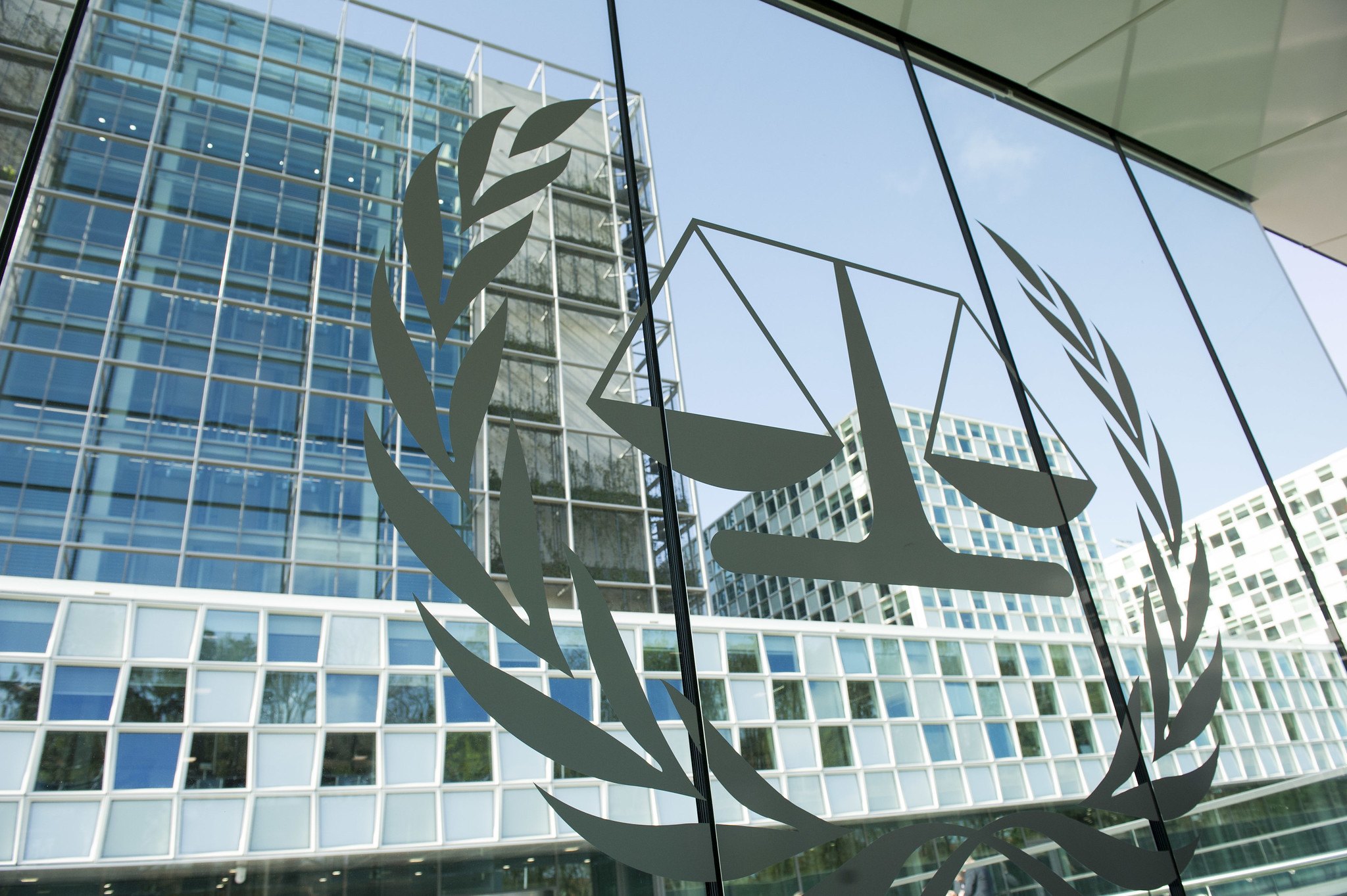Inter-Nyet: The Difficulty of Technological Sovereignty in Russia
On March 1, Russian President Vladimir Putin gave his annual address to the Federal Assembly, Russia’s version of Congress. Coming on the eve of the 2018 Russian presidential election, the speech laid out the state of the nation and discussed several of the challenges and opportunities that Russia will face in the next few years.
Published by The Lawfare Institute
in Cooperation With

On March 1, Russian President Vladimir Putin gave his annual address to the Federal Assembly, Russia’s version of Congress. Coming on the eve of the 2018 Russian presidential election, the speech laid out the state of the nation and discussed several of the challenges and opportunities that Russia will face in the next few years. While others have commented on the extensive attention that the speech devoted to Russia’s military might, Putin also addressed the state of Russia’s technological development. There the outlook was less sanguine: Putin believes that Russia is “falling behind” in the race to develop advanced technologies. As a result, the country faces the possible “loss of its sovereignty.” This outlook, informed by theories of technological sovereignty, informs a set of new policy prescriptions for national technological development aimed at achieving technological sovereignty for Russia.
Technological sovereignty is the idea that in order for a nation to enjoy effective sovereignty, it must maintain “the capability and the freedom to select, to generate or acquire and to apply, build upon and exploit commercially [the] technology needed for industrial innovation.” The idea sees technological development as an arena for and an enabler of competition between states, where one nation’s technological sophistication enables infringements on another’s sovereignty. Only those nations who are able to stay at the forefront of key technological developments will retain the ability to act independently—all others will find their development choices limited by powerful, technologically dominant foreign actors. Implicitly rejecting the technological utopianism of Silicon Valley, which views increased technological development and data flows as benefitting all mankind irrespective of where they originate, adherents of technological sovereignty (or “data nationalists”) prescribe a set of policies designed to indigenize advanced technology: Today, with information technology at the forefront of innovation, this may include measures such as data localization laws (which aim to keep data, a key factor of production for artificial intelligence, within national borders), nationalization of IT infrastructure, technology transfer requirements, foreign investment review, and the fostering and sustaining of indigenous alternatives to foreign media platforms. It’s important to differentiate technological sovereignty from cyber sovereignty. While the former seeks to promote national technological development and is ideologically agnostic, the latter seeks to control the national information space, including by limiting the scope of ideas expressed in society. Technological sovereignty can thus be a goal both for authoritarian China, whose “Made in China 2025” campaign seeks to localize broad parts of the country’s IT infrastructure, as well as democratic Germany.
Though he is far from the first world leader to champion technological sovereignty, Putin’s speech clearly resounds with its themes, and it is perhaps among the plainest rejections of Silicon Valley globalism in favor of hard-nosed national development of technological power. Parsing his speech, it’s possible to chart a rough framework of Putin’s views on the role of technology in developing national power.
Putin believes that technological sovereignty is vital to national survival. In his words, “those who manage to ride this technological wave will surge far ahead. Those who fail to do this will be submerged and drown in this wave.” Like many leaders, Putin is no longer worried solely about protection from American espionage, but also about the role of technology in Russia’s national development strategy. This elevation marks a significant change in emphasis from the Medvedev era, when tech policy did not rank high on Putin’s list of priorities. Since then, Putin’s remarks have linked technological development to national power and prestige, and have gradually afforded technological development a more prominent place in the hierarchy of state power. Putin’s address demonstrates that he more directly connects the development of independent indigenous technological capability to the maintenance of sovereignty and to success “in the political and military spheres.” This elevation of tech policy likely means that more high-level attention and resources will be forthcoming for Russian technologists.
Putin’s speech betrayed a mindset in which “technological lag and dependence translate into reduced security and economic opportunities of the country and, ultimately, the loss of its sovereignty.” Putin’s world is one in which nations, not individuals, are the primary actors, and the competition for influence over rivals is the primary driver of technological innovation. In contrast to views previously articulated in 2015, Putin appears to reject interdependence in technology as a factor for stability in international relations; instead, dependence on foreign platforms is a vector for exploitation and ultimately subjugation. While not going so far as to explicitly endorse technological autarky (which, in 2015, he said would only lead to stagnation), Putin directly links a lack of self-sufficiency in key technologies to national weakness.
The remedy, according to Putin, is for Russia to engage in a campaign of import substitution and technology localization, “build its own platforms” and avoid ceding significant parts of its IT infrastructure to foreign entities, goals that since 2016 have been enshrined in Russia’s Doctrine of Information Security. By contrast, in order to project power Russia must increase foreign reliance on its own IT platforms where possible. Such reliance can be translated into power by giving Russia leverage to intervene in or pressure foreign countries in a fashion analogous to its coercive energy diplomacy. For years, Western intelligence agencies have believed that antivirus software made by Kaspersky Lab provides just such a lever by giving Russia’s security agencies surreptitious access to customers’ machines. Given this view, protecting the domestic technology sector is necessary to prevent not only economic stagnation, but also political subversion.
However, technological sovereignty requires fostering innovation as well as protecting the domestic tech industry. Recognizing that innovation requires a healthy, stable and open society, Putin’s speech proposes a raft of basic reforms to Russia’s institutions designed to foster technological progress. These include not only steps to improve outcomes in health, education, and basic living conditions, but also reforms to Russian institutions, including steps designed to “expand freedom in all spheres, strengthen democratic institutions, local governments, civil society institutions and courts, and also open the country to the world and to new ideas and initiatives.” Crucially, Putin recognizes that spurring investment will require creating a “progressive legal framework and eliminat[ing] all barriers for the development and wide use” of advanced technologies, as well as a legal framework “to enable international research teams to operate in Russia.” Whether these legal regimes will be tied to wider reforms in the Russian legal system—which is plagued by corruption and inefficiency—went unsaid, though it is hard to see how without comprehensive reform an archipelago of good law in a sea of bad can provide foreign researchers and investors much comfort.
In charting a course for technological sovereignty, Putin appears to want to emulate the success that China has had in replacing foreign IT suppliers with domestic companies. However, achieving technological sovereignty will be much more difficult for Russia than for China. First, Russia is highly dependent on imported technology not only from the West, but also China, whose companies enjoy a significant and growing presence in the Russian market. This dependence extends to areas core to Russia’s interests, such as advanced technology used in natural resource extraction. This means that Russia has much more ground to cover in developing the conditions required for technological sovereignty. Second, unlike China, Russia will likely be unable to use the attractiveness of its market to force technology transfer as a condition of access. As then-Foreign Minister Yang Jiechi said, “China is a big country.” Other countries are not, he said. Despite it’s geographic size, in the context of technology market attractiveness, Russia falls in the latter group. Foreign firms can afford to lose the Russian market in a way they can’t with China. Third, it will be difficult for a cash-strapped, sanctioned Russian state to marshall the resources necessary for an ambitious technological development campaign, especially alongside other promised spending items. Fourth, while Russia produces world-class talent in critical fields such as computer science, a great deal of this talent does not remain in Russia, preferring instead to build careers in America or Europe. Without these talented young Russians, Putin will find it hard to build a robust, indigenous IT industry.
Finally, a history of unfulfilled promises for reform—and a current tendency toward one party rule and oppression—suggest that Putin will not deliver on proposals to make Russian society more open. Proposals from Putin to strengthen democracy and increase freedom in Russian institutions have been voiced regularly since he took power in 2000, to no effect. On a basic level, the structure of Russia’s patronage-based political economy is resistant to reforms designed to make society more open. Despite the urgency assigned to technological development, it is prudent to take his statements with a grain of salt especially against a backdrop of worsening oppression and consolidation of one-party rule.
Whatever he says about the role of private industry, Putin’s vision for a technologically sovereign Russia as outlined in his speech retains a leading role for the state in setting development priorities. Putin’s speech is replete with state mega-projects such as the Crimean Bridge or the rollout of a nationwide 5G network. While private industry and startups play a role, in Putin’s vision of a technologically sovereign Russia it is primarily the state that creates conditions for success, sets priorities for development, and determines winners and losers. This creates the risk that, as in centrally planned economies, technological development priorities will be poorly identified, project success will depend on political rather than market factors, and that initiatives will suffer from neglect and abandonment, much like Russia’s last ambitious innovation program at Skolkovo, which suffered from allegations of misuse of public funds and inefficiency.
While Putin sees technological sovereignty as a key part of national power, it’s unlikely he’ll be able to enact the significant changes necessary to encourage more indigenous IT development. Defensive measures such as data localization laws designed to keep big data at home may be relatively low-hanging fruit, but the deep institutional changes necessary to encourage innovation will threaten the power base of his government. Technological sovereignty abroad may be the goal, but political sovereignty at home is likely too high a price to pay.





